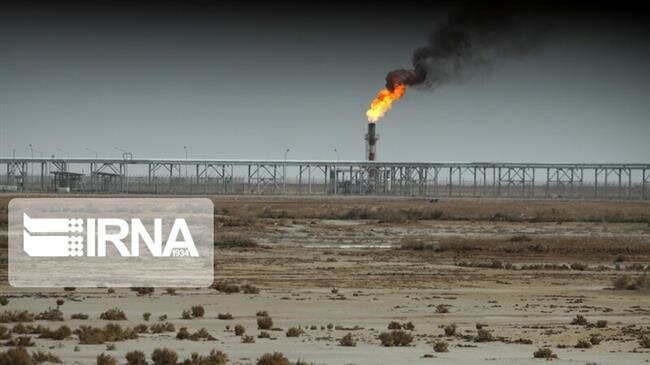Flare gas waste to be zeroed in major Iranian oil fields by 2022

TEHRAN – Head of National Iranian South Oil Company (NISOC) said that the country’s southern oil fields will stop wasting flare gas, which is burned during drilling operations, within three years, Press TV reported on Sunday.
According to Ahmad Mohammadi, the controversial practice of burning off gases through stacks at oil fields, will stop by 2022 in at least four locations south of Iran based on deals signed with two major Iranian companies.
Mohammadi said the companies, namely the Maroun Mechanic and Persian Gulf Petrochemical Industries Company, have committed as part of deals signed last year to pipe the gases to nearby plants and refineries.
He said old flare stacks near Ahvaz, a major provincial capital southwest of Iran, as well as in Aghajari, Gachsaran and Maroun, will be dismantled at the end of the projects.
Iran has massive plans to use flared gas in oil and gas facilities, says an energy official.
The official said the projects would seriously improve energy efficiency at petrochemical facilities south of Iran while they would also help increase production and storage of oil in the area.
He said talks were underway to carry out similar flaring projects at Masjed Soleyman, where some of the oldest Iranian oil facilities are located.
Earlier this month, Hamid Chitchian, a former minister who currently advises the government on energy issues, said that Iran was planning to economically and technically benefit from a huge stock of flared gas that is currently wasted through the stacks in refineries.
According to Chitchian there is about 16 billion cubic meters (over 52 billion cubic feet) of flare gas that could be used for various economic purposes, including power generation.
“The use of flare gas is one of the challenges of the oil sector,” said Chitchian, adding, “Thus we are planning to attract investment from the private sector and offer loans in the two ministries for this purpose.”
The implementation of flaring projects in Iran comes as the country faces an unprecedented wave of sanctions on its oil and gas industry, limiting its ability to engage with foreign companies who have experience in the field.
EF/MA

Leave a Comment